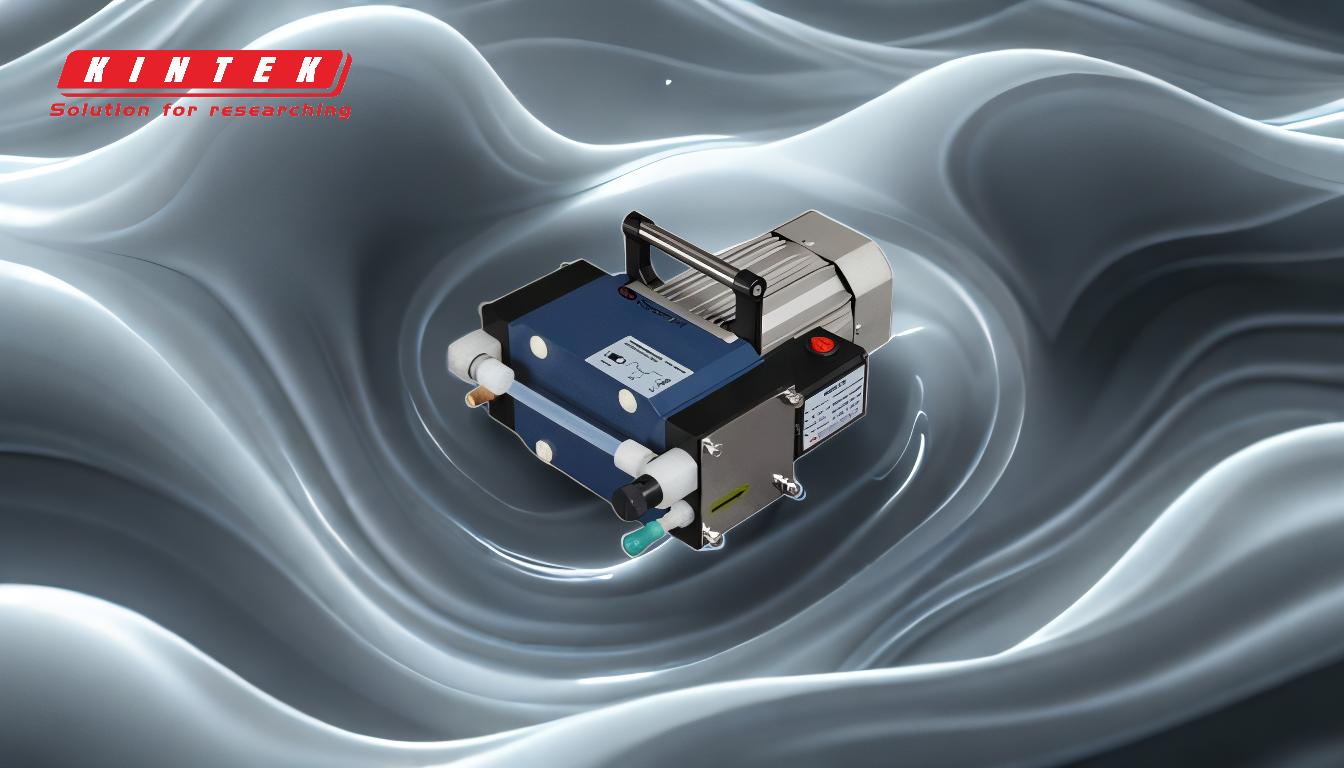Diffusion pumps are widely used in high-vacuum applications due to their unique design and operational advantages. They are known for their durability, reliability, and ability to achieve extremely high vacuum levels, making them ideal for applications such as electron-beam microscopy, vacuum deposition, and vacuum furnaces. Their lack of moving parts reduces wear and tear, while their efficient heat transfer mechanisms ensure consistent performance. Additionally, diffusion pumps are versatile in size and can handle a wide range of vacuum levels, making them suitable for various industrial and scientific applications.
Key Points Explained:

-
No Moving Parts:
- Diffusion pumps have no moving mechanical components, which significantly reduces wear and tear over time.
- This design feature enhances their durability and reliability, as there are fewer parts that can fail or require maintenance.
- The absence of moving parts also minimizes vibration and noise, making them suitable for sensitive applications like electron-beam microscopy.
-
High Vacuum Levels:
- Diffusion pumps can achieve extremely high vacuum levels, ranging from 10^-2 to 10^-10 torr.
- This makes them ideal for applications requiring ultra-high vacuum conditions, such as vacuum deposition and coatings.
- Their ability to maintain consistent high vacuum levels ensures precise and reliable performance in critical processes.
-
Efficient Heat Transfer:
- The operation of a diffusion pump relies on efficient heat transfer, facilitated by a heater and diffusion pump oil.
- Proper heater selection ensures optimal boiling of the oil, which is critical for creating the vapor jets that generate the vacuum.
- Efficient heat transfer not only improves performance but also extends the operational life of the pump and reduces downtime.
-
Versatility in Size and Application:
- Diffusion pumps are available in various sizes, making them adaptable to different system requirements.
- Their versatility allows them to be used in a wide range of applications, from small laboratory setups to large industrial systems.
- They are commonly used in vacuum furnaces, electron-beam microscopy, and vacuum deposition processes, showcasing their broad applicability.
-
Low Maintenance Requirements:
- Due to their simple design and lack of moving parts, diffusion pumps require minimal maintenance.
- This reduces operational costs and downtime, making them a cost-effective solution for high-vacuum applications.
- The use of diffusion pump oil, which is continuously recycled within the system, further minimizes maintenance needs.
-
Chemical and Corrosion Resistance:
- While not explicitly mentioned in the references, diffusion pumps are often designed to handle a variety of gases and vapors, including those that may be corrosive.
- This makes them suitable for applications in industries where chemical resistance is crucial, such as semiconductor manufacturing and chemical processing.
-
Oil-Based Operation:
- Diffusion pumps use oil to create the vacuum, which allows for efficient operation and high vacuum levels.
- The oil is continuously recycled within the system, reducing waste and operational costs.
- However, this also means that diffusion pumps are not oil-free, which may be a consideration in applications where contamination is a concern.
-
Wide Range of Industrial and Scientific Applications:
- Diffusion pumps are used in a variety of industries, including electronics, aerospace, and materials science.
- Their ability to achieve high vacuum levels and maintain consistent performance makes them indispensable in processes like vacuum deposition, where precise control over the vacuum environment is essential.
In summary, diffusion pumps offer numerous advantages, including durability, high vacuum capabilities, efficient heat transfer, and low maintenance requirements. Their versatility and reliability make them a preferred choice for a wide range of high-vacuum applications across various industries.
Summary Table:
| Advantage | Description |
|---|---|
| No Moving Parts | Reduces wear and tear, enhances durability, and minimizes vibration and noise. |
| High Vacuum Levels | Achieves ultra-high vacuum levels (10^-2 to 10^-10 torr) for precision processes. |
| Efficient Heat Transfer | Ensures optimal performance and extends operational life with minimal downtime. |
| Versatility in Size | Adaptable to various system requirements, from small labs to large industries. |
| Low Maintenance | Minimal upkeep due to simple design and lack of moving parts. |
| Chemical Resistance | Suitable for corrosive environments in industries like semiconductor manufacturing. |
| Oil-Based Operation | Efficient and cost-effective, though not oil-free. |
| Wide Application Range | Used in industries like electronics, aerospace, and materials science. |
Discover how diffusion pumps can enhance your high-vacuum processes—contact our experts today!







